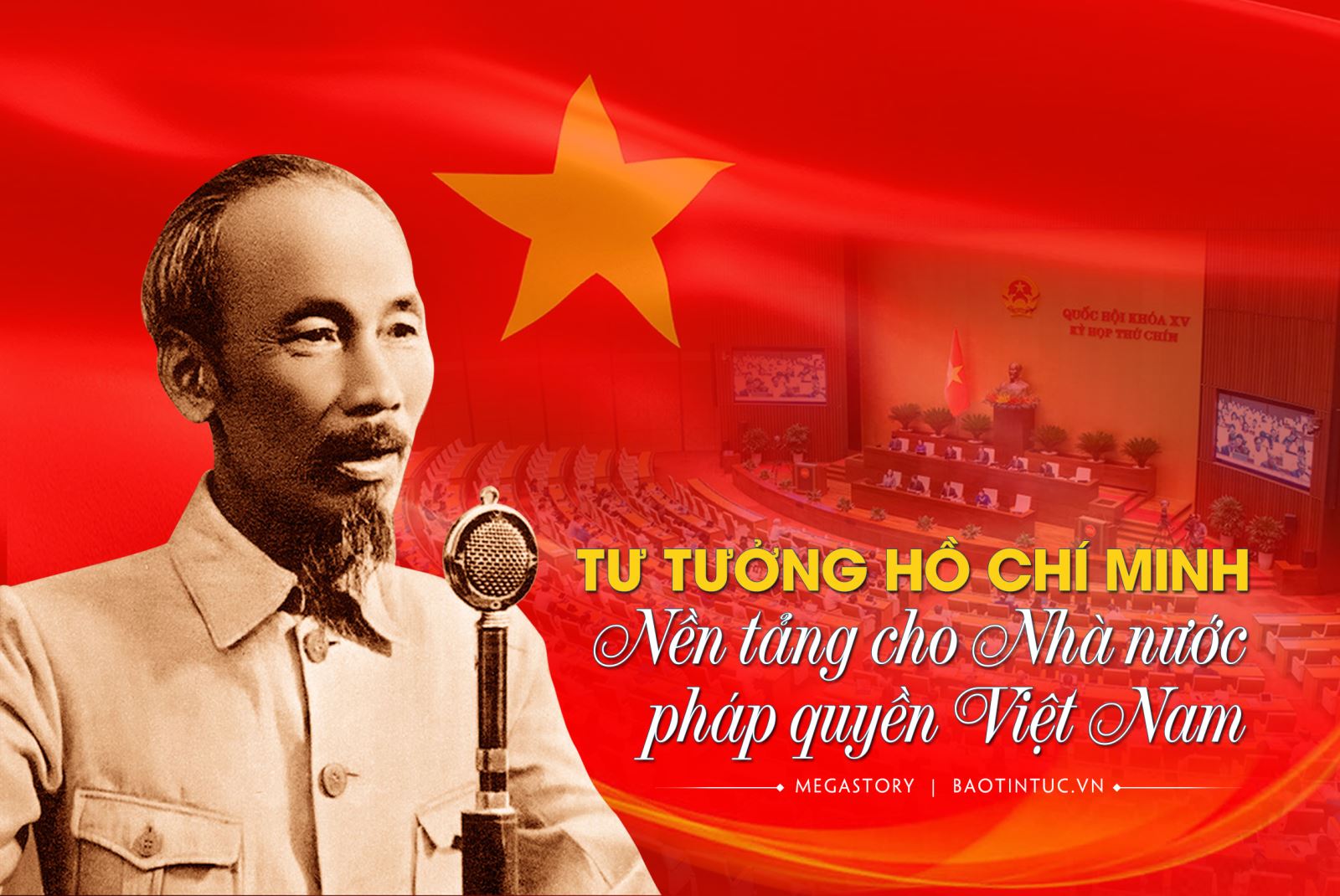

Ho Chi Minh's thought on the rule of law state is deeply democratic, humanistic, scientific and revolutionary. It is a consistent system of viewpoints, from theoretical awareness to practical action, expressed throughout the process of leading the Vietnamese revolution and founding the Democratic Republic of Vietnam - the first new-style rule of law state in the history of the nation.
As early as September 2, 1945, in the Declaration of Independence, President Ho Chi Minh laid the foundation of his ideology on human rights, civil rights and the rule of law: “All men are born equal. Their Creator has endowed them with certain inviolable rights…”. (1)
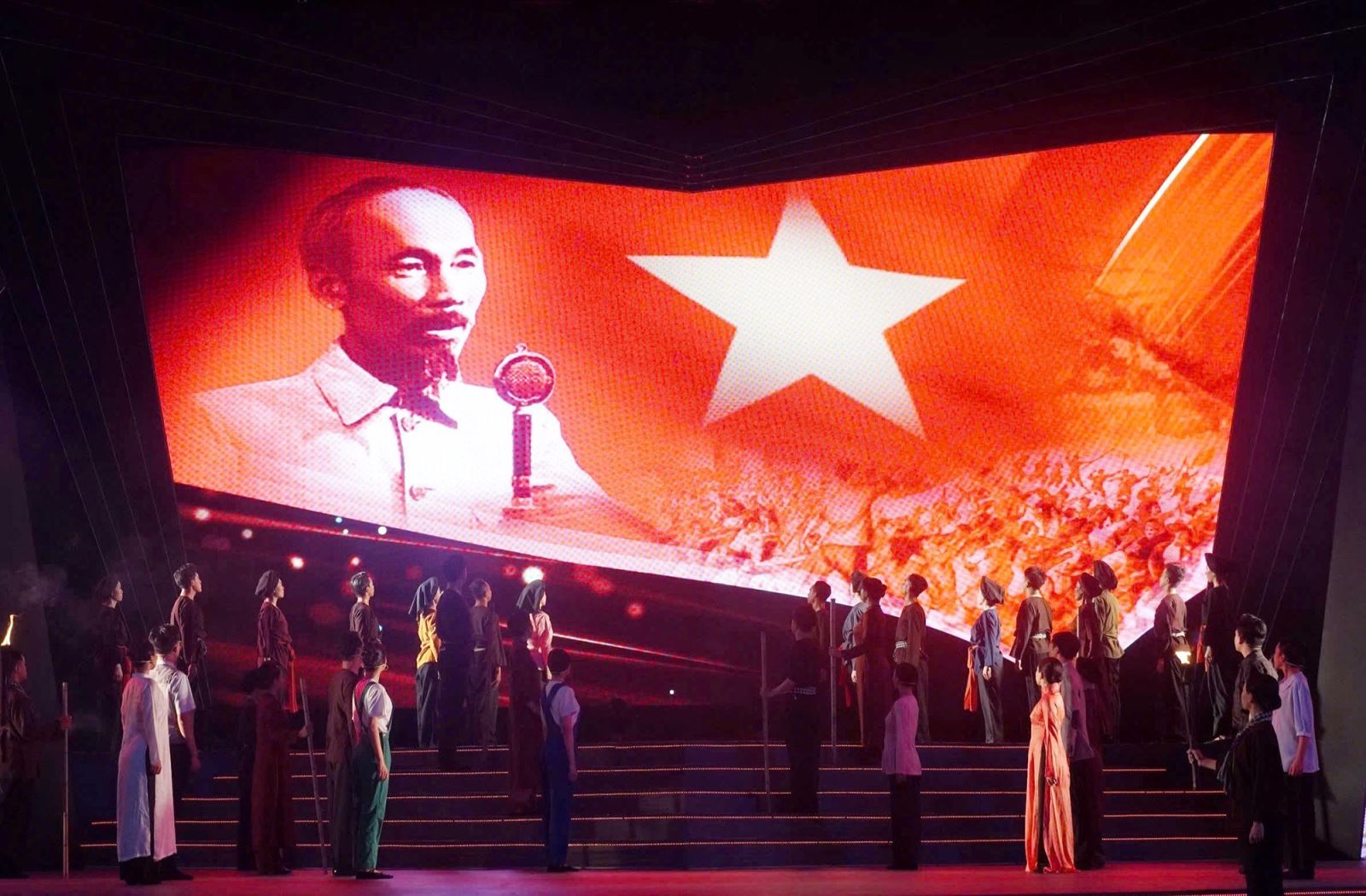
Image of Uncle Ho reading the Declaration of Independence at a special art program with the theme "Sacred Fatherland" to celebrate the 79th anniversary of the August Revolution and National Day September 2, on the evening of September 2, 2024, in Ho Chi Minh City.
Before the Constitution, President Ho Chi Minh signed many important decrees to deal with urgent issues of the country, such as: abolishing the poll tax, establishing universal education, preparing for the General Election, establishing the Constitution Drafting Committee (Decree No. 34-SL dated September 20, 1945)... His legal thinking was clearly demonstrated through his actions, expressing a unified viewpoint: national governance must be by law, not subjective imposition, the goal is to serve the people.
Not only was he the founder, President Ho Chi Minh also directly led the legislative process. He twice headed the Constitution Drafting Committee (in 1946 and 1959); he directly signed and promulgated 16 laws, 613 decrees and hundreds of sub-law documents during his tenure as President . These documents established an initial legal foundation for the Vietnamese rule of law state, a state that takes “the rule of law” as the guiding principle for all actions.
In particular, the 1946 Constitution, the first Constitution of our country, is a document with timeless legal, political and ideological values. In it, the idea of “A State of the people, by the people, for the people” is clearly affirmed: “Vietnam is a democratic republic. All power in the country belongs to the entire Vietnamese people, regardless of race, gender, rich or poor, class, or religion”; “Matters related to the fate of the nation will be submitted to a referendum by the People”.
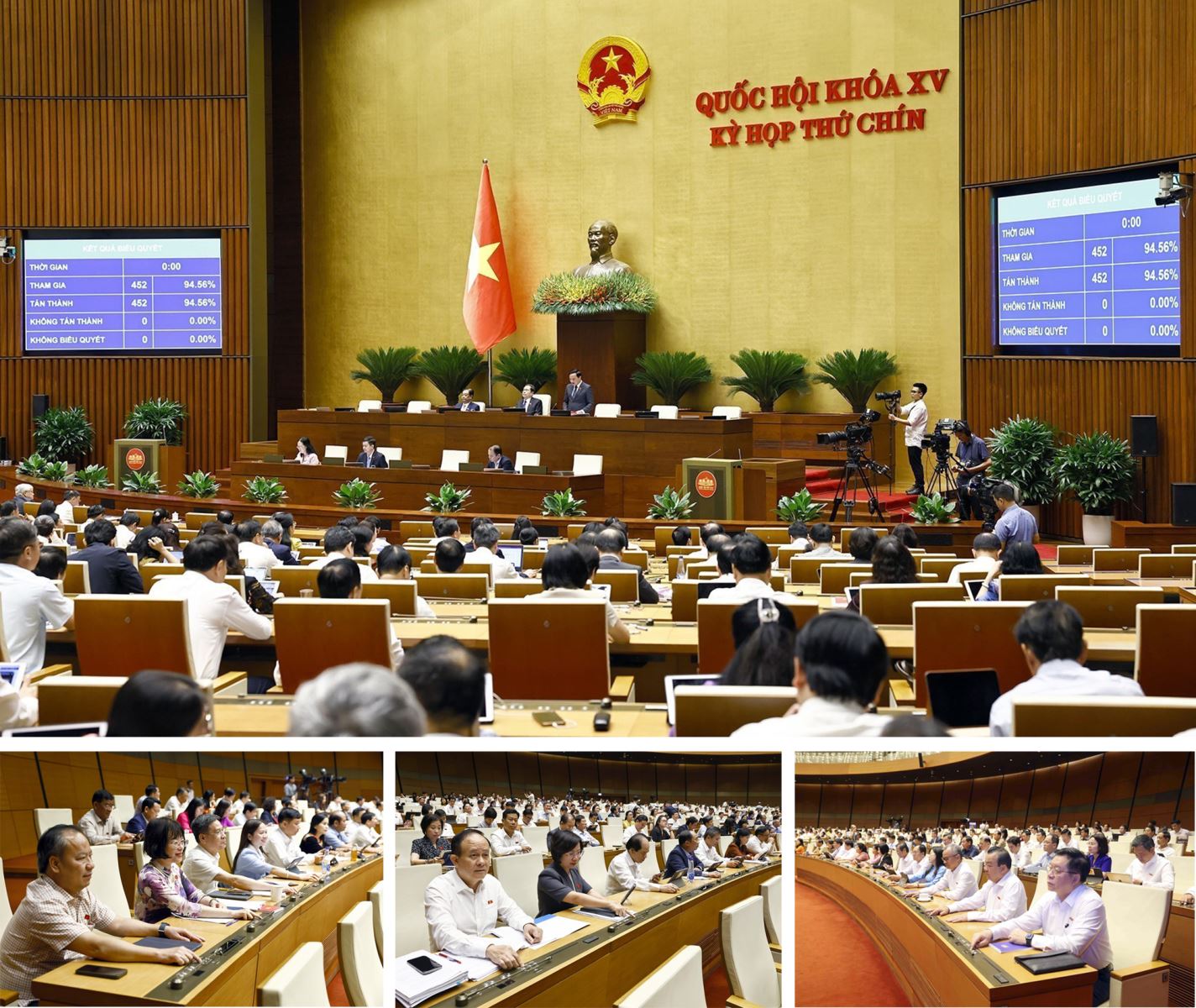
The National Assembly voted to pass the Resolution of the National Assembly on amending and supplementing a number of articles of the 2013 Constitution.
In his writings and speeches, President Ho Chi Minh also repeatedly emphasized: “Our regime is a democratic regime, meaning that the people are the masters” (2). Therefore, state agencies, from the central to local levels, “are all servants of the people, meaning they are meant to shoulder the common work of the people, not to oppress the people as under the rule of France and Japan. Whatever is beneficial to the people, we must do our utmost. Whatever is harmful to the people, we must avoid at all costs…” (3).
To build a socialist legal system, President Ho Chi Minh paid special attention to training a team of cadres, civil servants, and regular officials who were knowledgeable about the law and proficient in administrative management in all areas of social life. In 1946, President Ho Chi Minh signed Decree No. 197 to establish the Legal Department at Vietnam University; in 1950, he signed Decree No. 76 to promulgate the "Civil Service Regulations" to ensure fairness in recruitment and appointment to administrative ranks. He required that civil service recruitment exams be based on knowledge of politics, economics, law, geography, history, foreign languages, etc. to build a professional and effective administration.
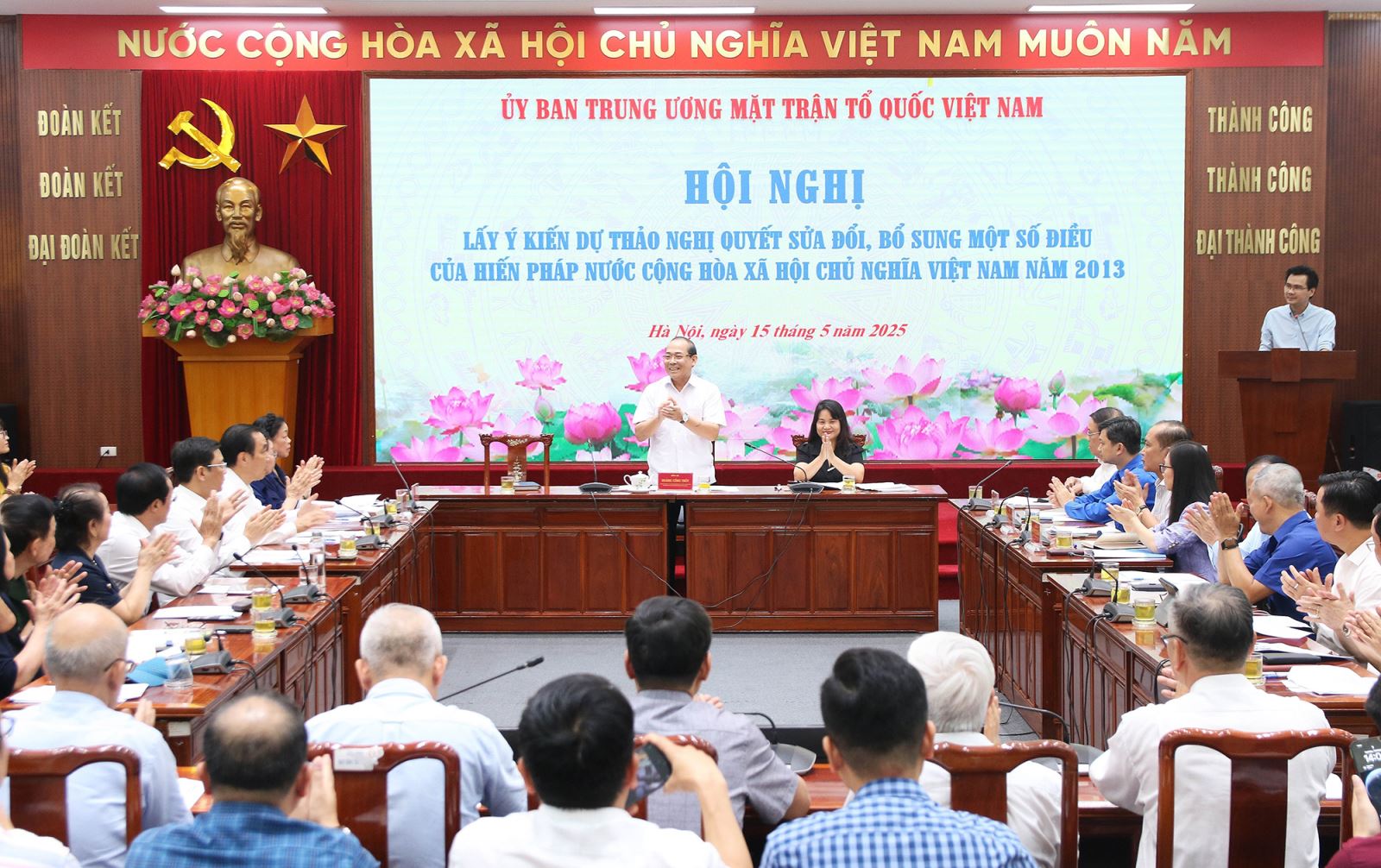
The Central Committee of the Vietnam Fatherland Front held a conference to collect opinions on the Draft Resolution amending and supplementing a number of articles of the 2013 Constitution on the afternoon of May 15, 2025.
In addition to focusing on building a system of national governance through law, building a team of virtuous and talented cadres and civil servants, President Ho Chi Minh also paid attention to the work of propagating, disseminating and educating the law, raising the level of awareness and law compliance of the people, while emphasizing the role of law enforcement officers. In a letter to the National Judicial Conference (January 1948), he advised: “You are the ones who enforce the law, of course you must set an example of “serving the public, abiding by the law, being impartial and selfless” for the people to follow.” (4)
President Ho Chi Minh was also an exemplary model in practicing the rule of law. A typical example is that in 1946, despite being the head of state, he personally wrote a request to the National Assembly for permission to be absent from a session to go on a business trip abroad. This was an act that demonstrated the spirit of the rule of law at the highest level. In addition, in his daily work, he always advised officials to rely on the law to work, not to violate the law, not to take advantage of their authority to violate the law, considering this a core condition for building a clean and strong government.

In the process of national innovation and development, Ho Chi Minh's thought on building a socialist rule-of-law state, a state of the people, by the people and for the people continues to be the theoretical foundation for the process of building a rule-of-law state in Vietnam in the period of innovation, integration and development.
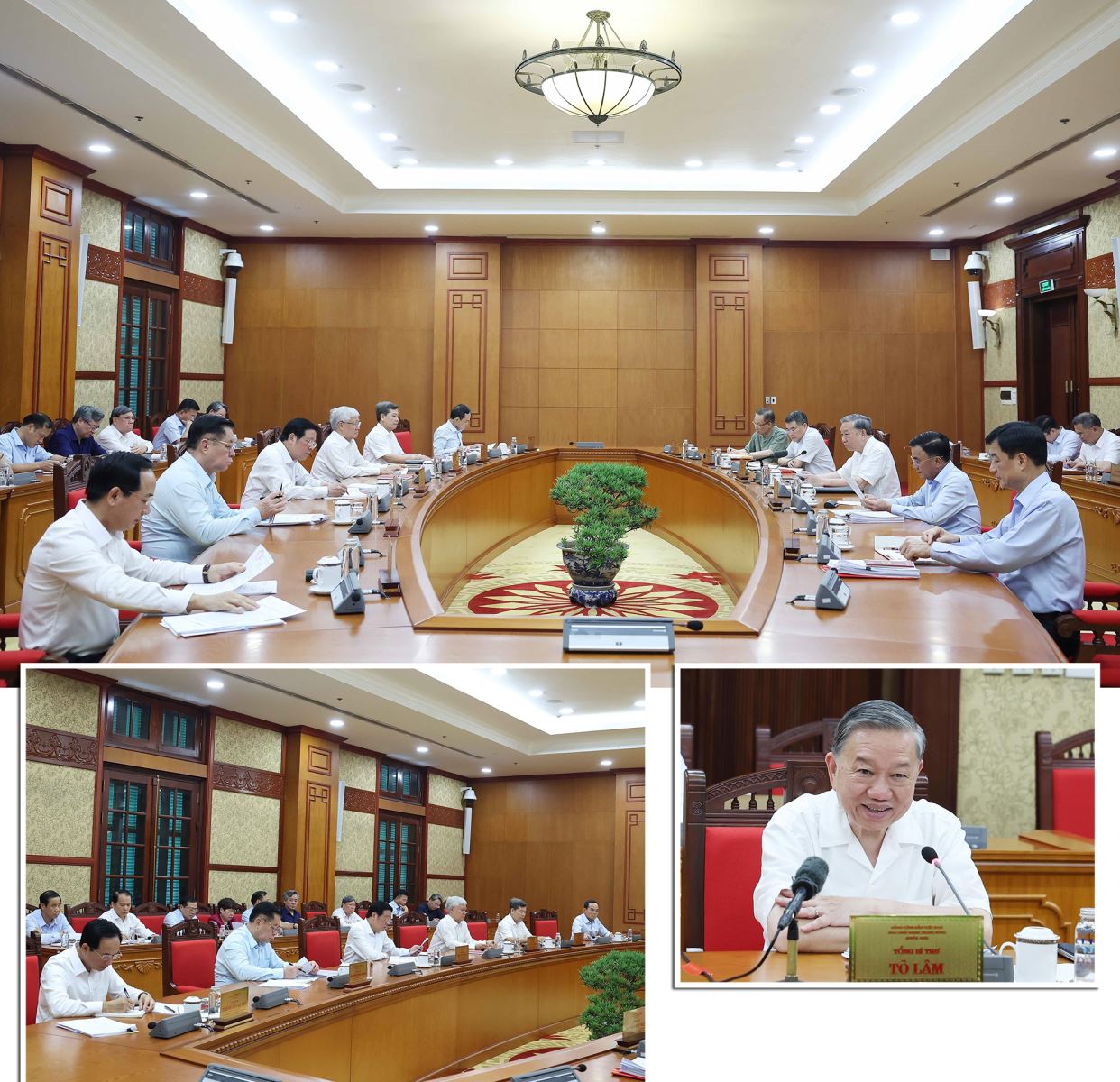
General Secretary To Lam chaired a meeting of the Secretariat on the implementation of collecting opinions from the people, sectors and levels on the content of amending and supplementing a number of articles of the 2013 Constitution, on the afternoon of May 13, 2025.
Applying President Ho Chi Minh's viewpoint, since the country's reunification, the Vietnamese State has promulgated three Constitutions (1980, 1992 and 2013). The 2013 Constitution clearly affirmed the principle of "the Socialist Republic of Vietnam is a rule-of-law state of the people, by the people, for the people", "the Socialist Republic of Vietnam is owned by the people..." (Article 2). At the same time, it clarified the principle of organizing state power: "The State is organized and operates according to the Constitution and laws, manages society by the Constitution and laws, and implements the principle of democratic centralism" (Article 8).
Along with that, aware of the important role of law in the development of the country, on May 24, 2005, the 9th Politburo issued Resolution No. 48-NQ/TW on the Strategy for building and perfecting the Vietnamese legal system until 2010, with a vision to 2020. After 20 years of implementation, our country's legal system has made an important shift to the legal system of the period of comprehensive national renovation. The promulgation of many codes, laws, and ordinances has created a legal framework to improve the effectiveness of State management in all areas of the country's life and ensure the interests of the people and businesses.
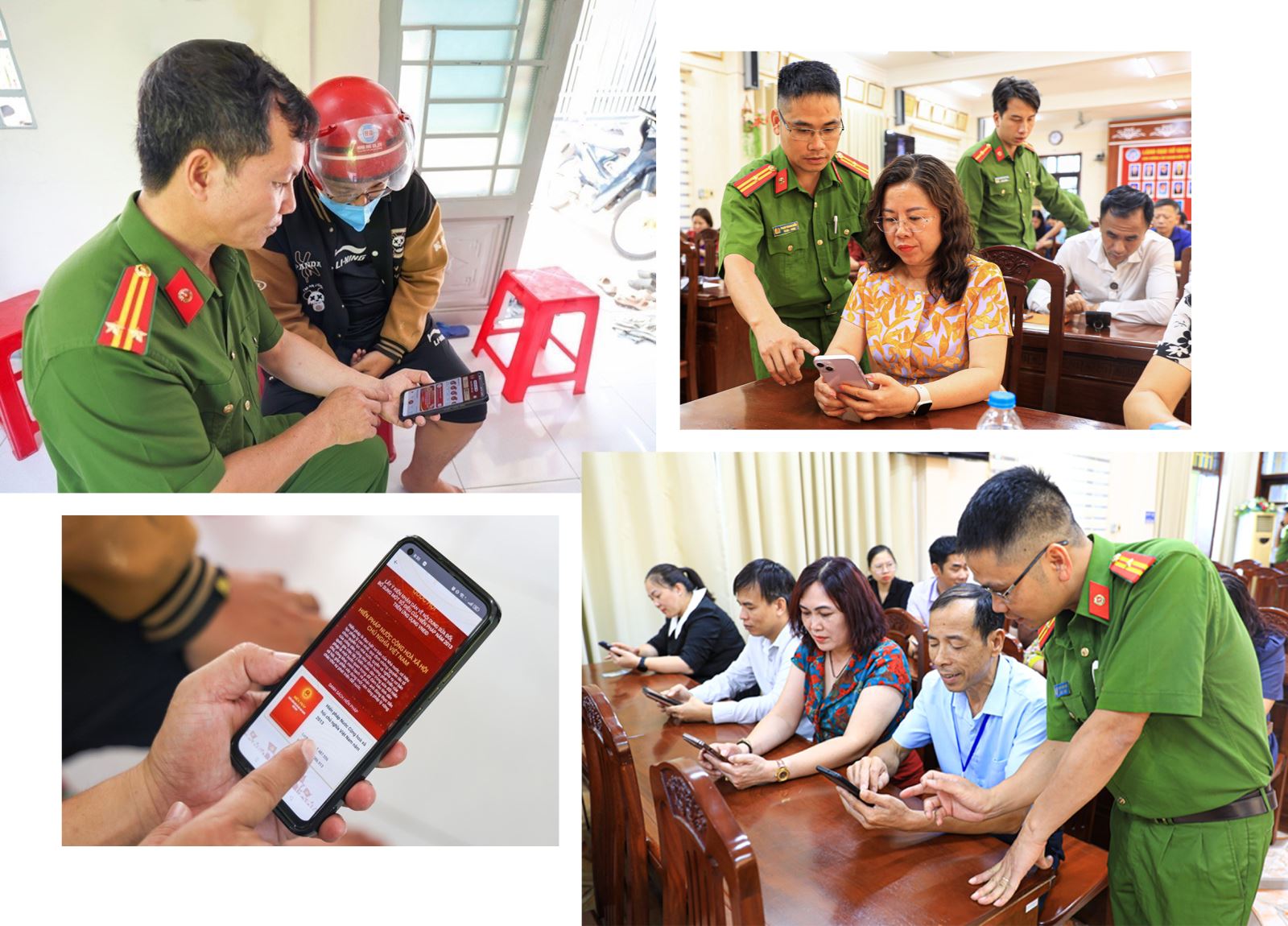
Dien Bien Provincial Police and Can Tho City instruct officers and civil servants to give comments on the draft amendments and supplements to the 2013 Constitution via VNeID on personal smartphones.
In particular, on April 30, 2025, the Politburo issued Resolution No. 66-NQ/TW on "Innovation in law-making and enforcement to meet the requirements of national development in the new era". The main goal of the Resolution is to create a truly democratic, equal, safe and transparent society; the people are truly in charge; decide many important issues of the country; manage and govern modern society, create development; improve all aspects of life for the people, firmly protect the socialist Fatherland of Vietnam.
Recently, in the process of building a rule-of-law state, at the 9th session on May 5, 2025, the 15th National Assembly voted to pass Resolution No. 194/2025/QH15 on amending and supplementing a number of articles of the 2013 Constitution. On the same day, the National Assembly also passed Resolution No. 195/2025/QH15, establishing a 15-member Constitutional Amendment Drafting Committee chaired by National Assembly Chairman Tran Thanh Man. The period for collecting public opinions on the draft Resolution begins from May 6 to June 5, 2025.
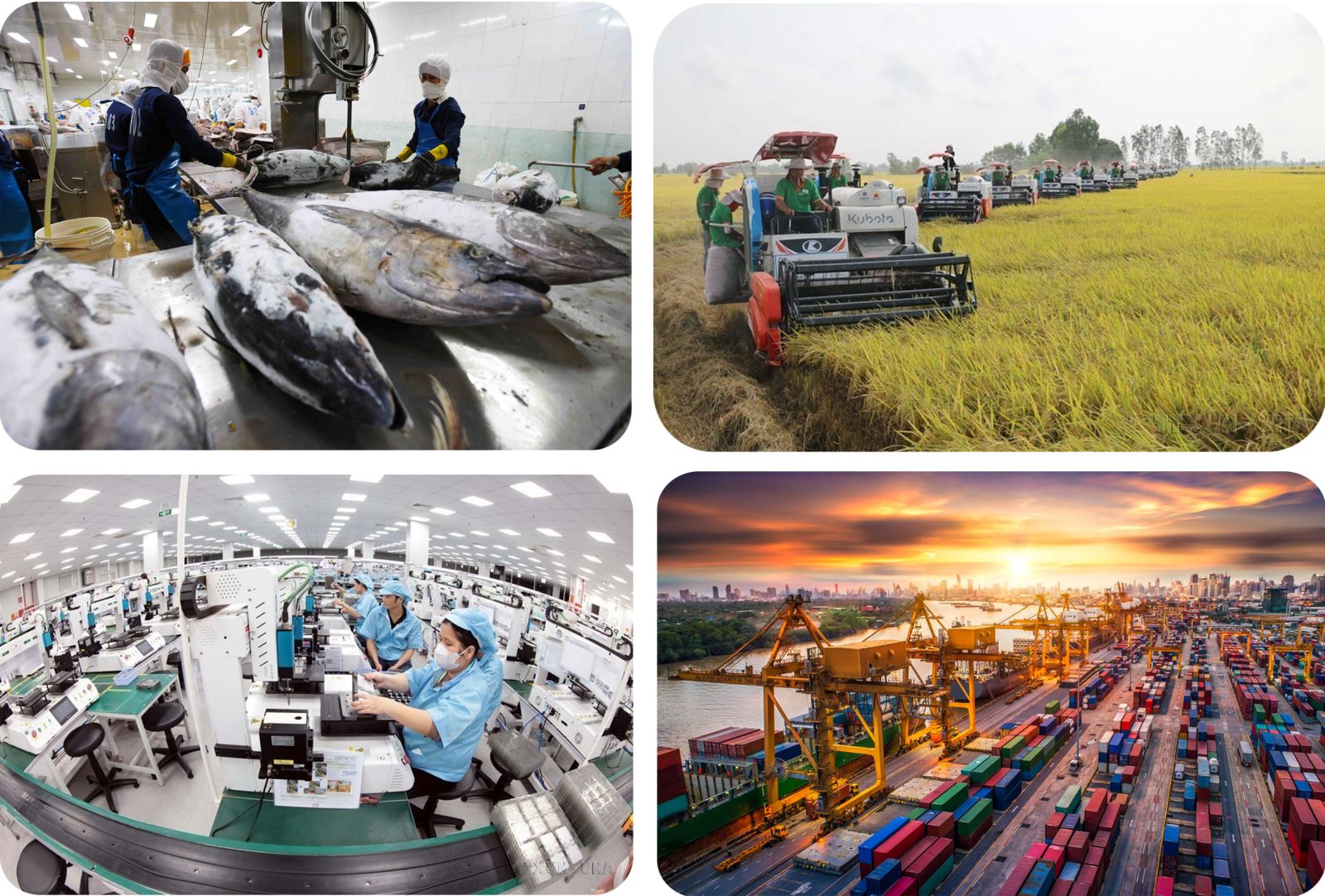
Perfecting institutions and laws to liberate all productive forces, unleash all resources, promote all potentials and strengths of the country, and take advantage of all development opportunities.
This amendment to the Constitution not only meets the requirements of integration and national governance in the new context, but is also a strong realization of Ho Chi Minh's thought on a state under the law, for the supreme interests of the people.
In the article "Institutional and legal breakthroughs for the country to rise up", General Secretary To Lam also affirmed that to realize the nation's aspiration to rise up, "a very important task is to continue to pay attention to perfecting institutions and laws to liberate all productive forces, unleash all resources, promote all potentials and strengths of the country, and take advantage of all development opportunities".
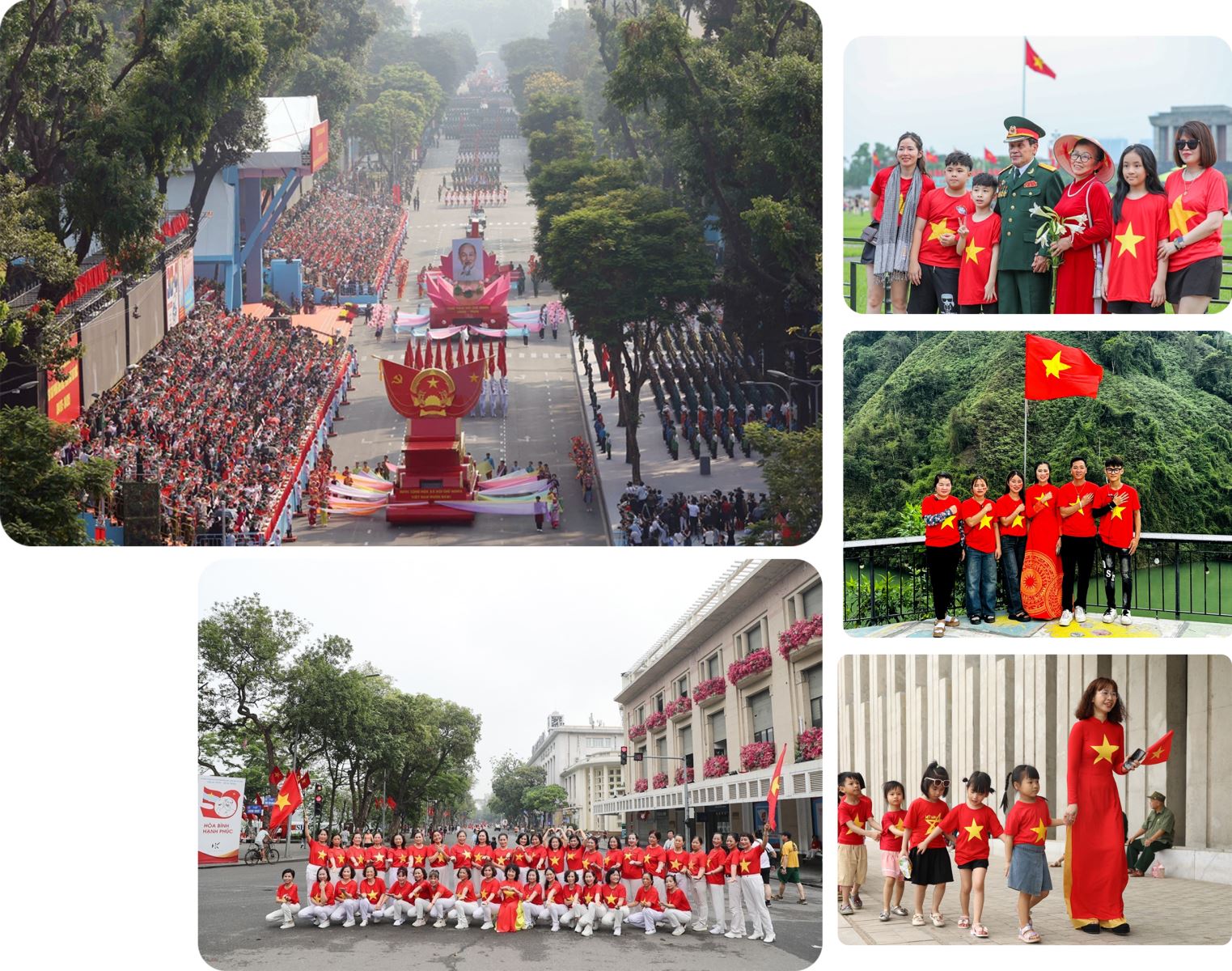
People across the country joyfully celebrate the 50th anniversary of national reunification (April 30, 1975 - April 30, 2025).
It can be seen that Ho Chi Minh's thought is a profound and comprehensive theoretical foundation for building a socialist rule-of-law state in Vietnam. From his first steps in establishing the law to today's institutional reforms, all show consistency in building a state that respects the law, serves the people, and is for the development of the nation. This is the sustainable path for Vietnam to maintain political stability, social justice, modernize the country, and realize the aspiration of "standing shoulder to shoulder with the world powers" as Uncle Ho always wished.
(1) Ho Chi Minh: Complete Works, National Political Publishing House, Hanoi - 2011, vol. 4, p. 1
(2) Ho Chi Minh: Complete Works, op. cit., vol. 13, p. 83
(3) Ho Chi Minh: Complete works, op. cit., vol. 4, pp. 64-65
(4) Ho Chi Minh: Complete Works, op. cit., vol. 5, p. 473
Article: Minh Duyen
Photos, graphics, videos: VNA
Editor: Ky Thu
Presented by: Nguyen Ha
Source: https://baotintuc.vn/long-form/emagazine/tu-tuong-ho-chi-minh-nen-tang-cho-nha-nuoc-phap-quyen-viet-nam-20250518090610600.htm



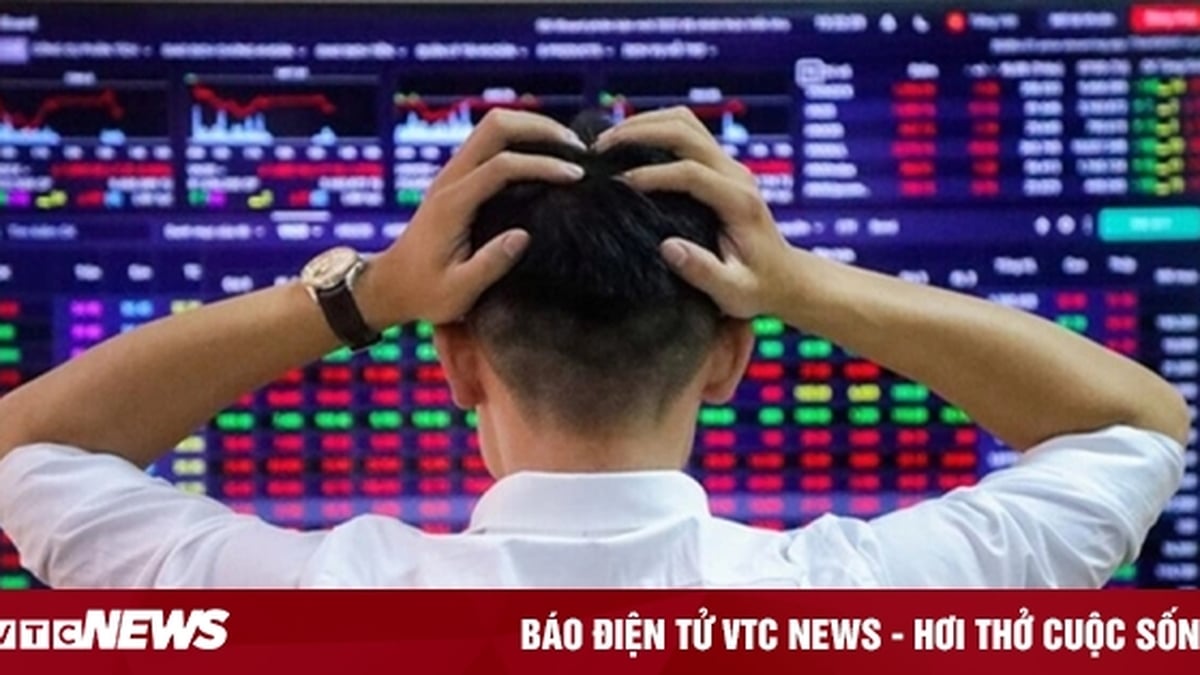


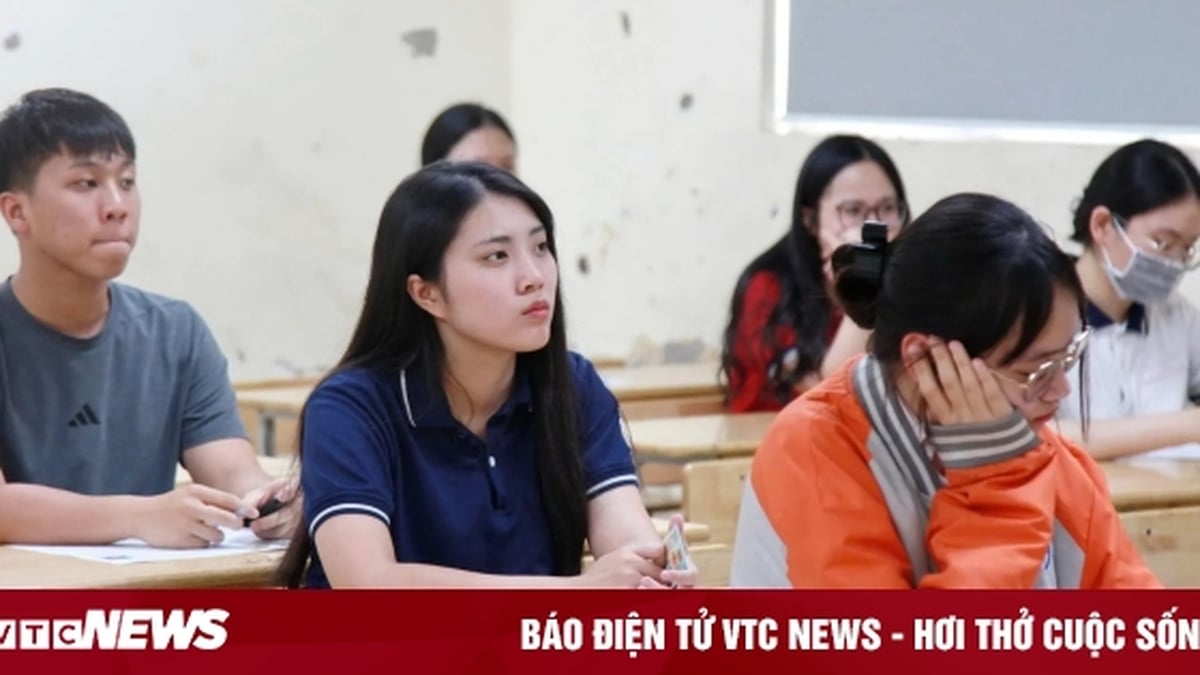


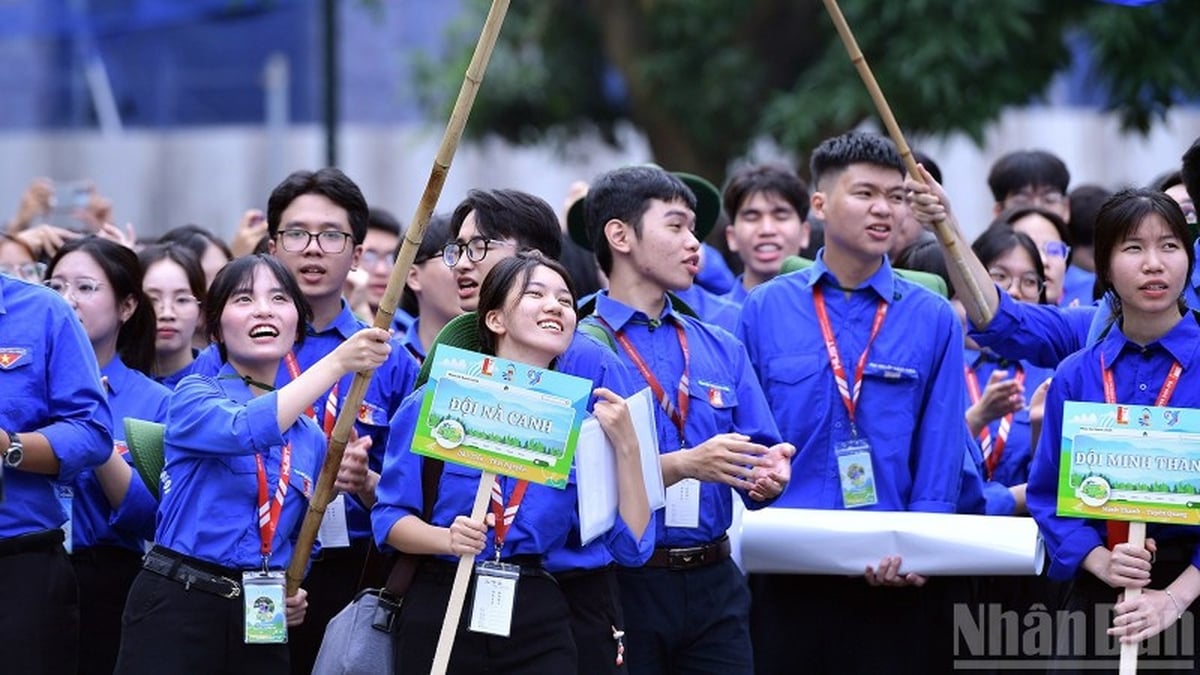
















![[Photo] National Assembly Chairman attends the seminar "Building and operating an international financial center and recommendations for Vietnam"](https://vphoto.vietnam.vn/thumb/1200x675/vietnam/resource/IMAGE/2025/7/28/76393436936e457db31ec84433289f72)






















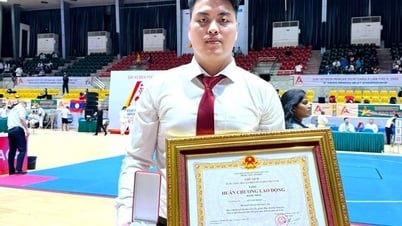

















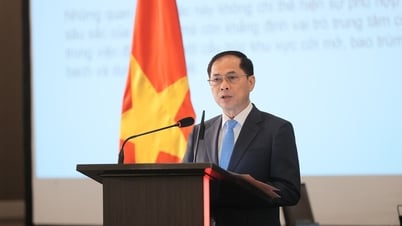

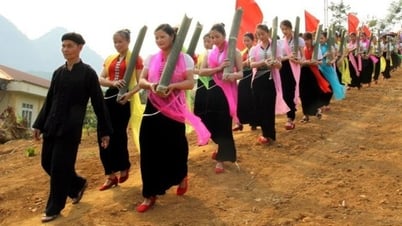

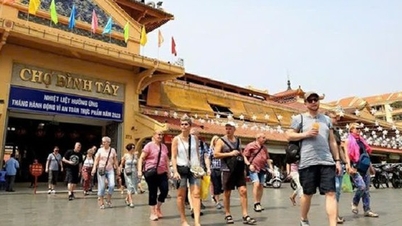
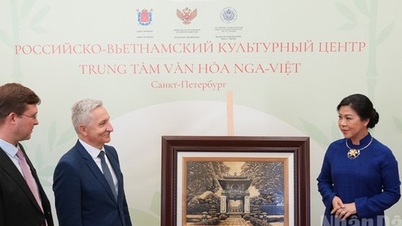

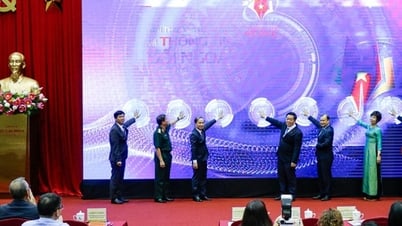
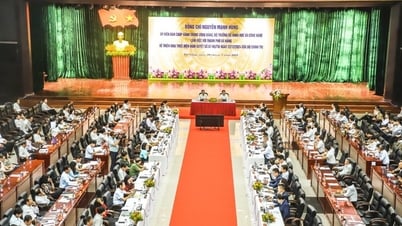






















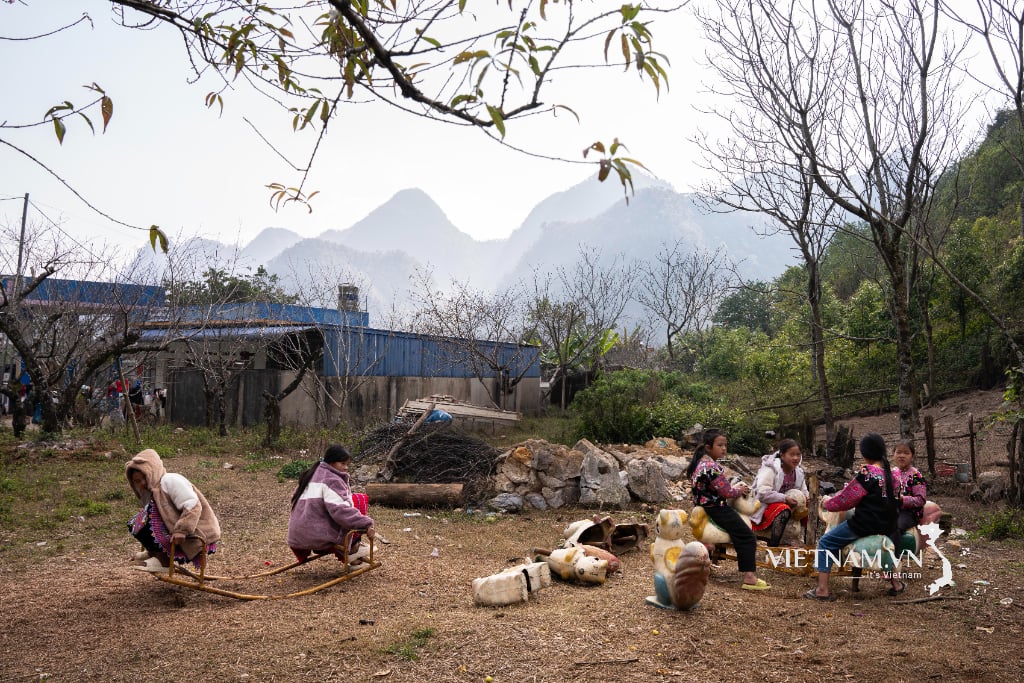

Comment (0)